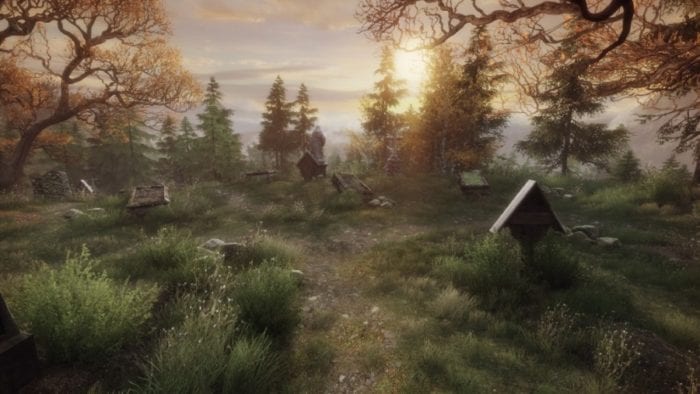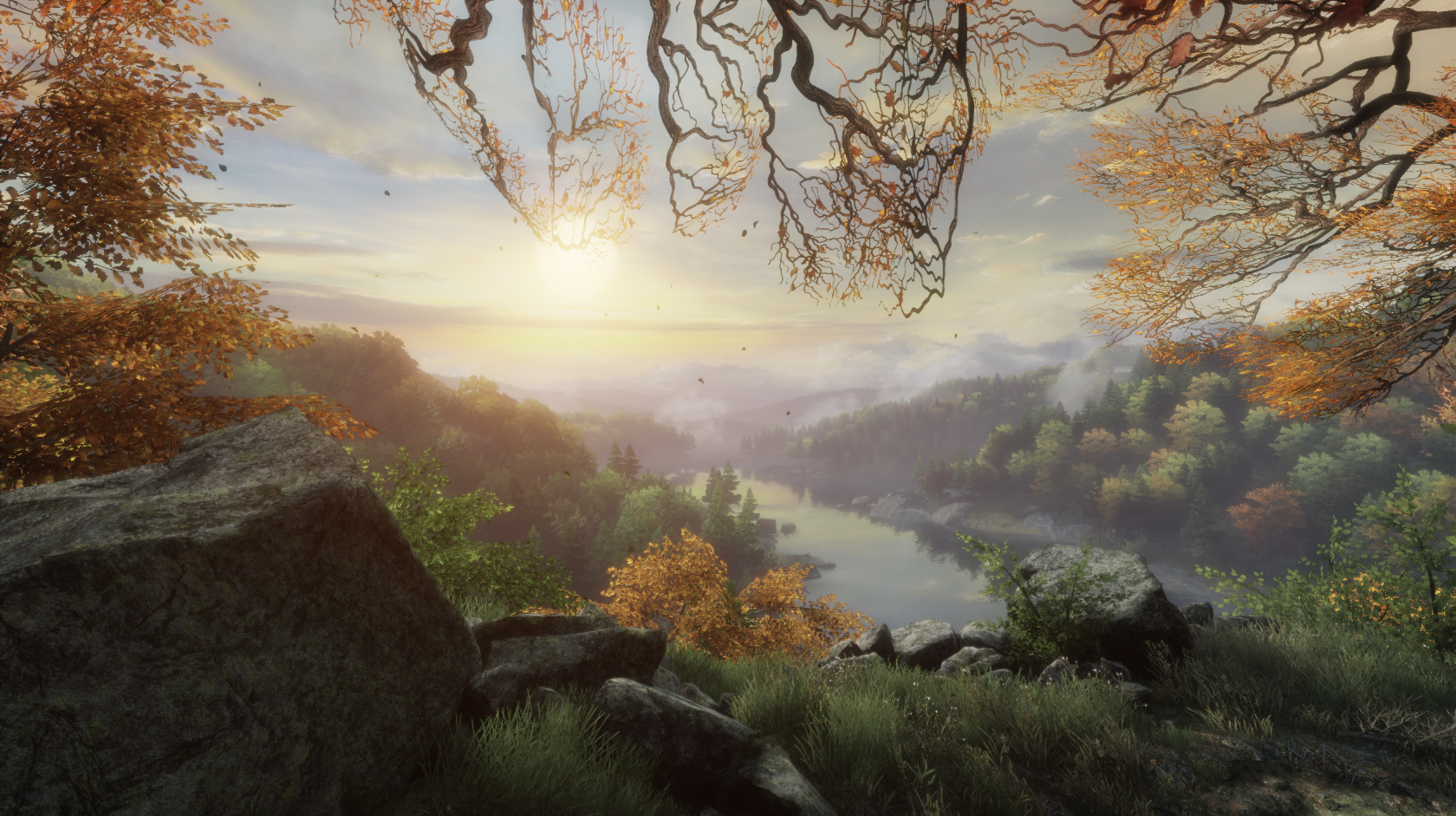


What results from this purposeful lack of structure isn't a new, unbidden or interesting kind of narrative – it's the story of a character who spends much of his time sprinting back and forth in the same streets and forests, occasionally - accidentally - stumbling across a crime scene. And even if you ignore those old models of narrative, and talk about games like XCOM and Dark Souls, where the story-as-written is very bare, and it's the player's actions that create the true narrative, then Ethan Carter still doesn't fit, since your interactions with the game world are sporadic and nothingy. It suggests a level of intent and rigidity, the way that a novel can only be fully understood if you read the pages in the right order. "Narrative" implies direction, pacing, momentum and drama. The game definitely gets the "won't hold your hand" part right, but this isn't a narrative experience. But much of your time in Ethan Carter will be spent wandering, dismally, trying to unearth the next chip of story. It's a novel way to structure a game and, I guess, a valid response to that question about developer against player. Once you've found and decrypted all of these incidents, and slotted together the game's story, you hit a button and the end cutscene rolls. You may, for example, come across a dead body and can then spend time finding the murder weapon, moving objects around and piecing together the chronology of events to decipher and display exactly what happened. You have access to Ethan Carter's entire open-world from the start and there are ten "scenes" for you to find and explore. I think The Astronauts have confused vagueness, or contrariness, with sophistication. The Vanishing of Ethan Carter: A beautiful game featuring European architecture and lush forests The Astronauts


 0 kommentar(er)
0 kommentar(er)
